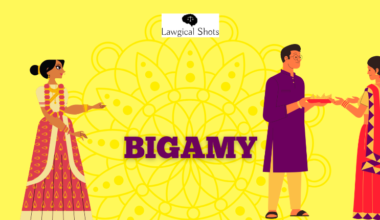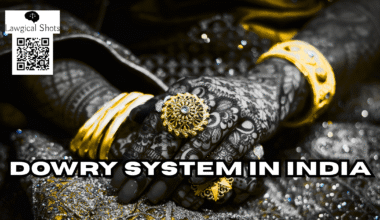We are Bollywood fans, we have seen people fighting their own cases in the Court. So yes, the question why is legal aid important does not seem out of the box. People know their interests the best but don’t truly realize that they need legal understanding to argue before the Court of Law. They are unaware that words like “may” and “shall” make a lot of difference and have the power to extend arguments and pages in judgments. For the sake of such innocent people, we bring an introductory blog on free legal aid and its basics which everyone should know. Let’s take a step-by-step drive to reach the part where we know who all can be benefitted by the Legal Aid Scheme.
What is Legal Aid in India?
The concept of free legal aid entitles everyone with the right to get legal assistance in every legal matter, whether it is a civil or criminal case. It is not just limited to having a lawyer when you want to file a case or defend one. It extends to legal awareness camps, print media, digital media and organizing Lok Adalats for the amicable settlement of disputes. Lok Adalats are further not confined to pending matters but also covers those which are yet to be filed.
Historical Traces of Free Legal Aid
It may be noted that legal aid was not there from the very beginning when the Constitution of India came into force in 1949-1950. It was only in 1976 when the 42nd Constitution Amendment Act introduced Article 39A. The Directive Principles of State Policy require the State to provide free legal aid to ensure equal access to justice for the people.
Importance of Legal Aid in India
In a country like India, there are people from all backgrounds. Some are extremely rich, while others have to work hard to make sure their family does not end up sleeping with an empty stomach. With such diverse living conditions, it cannot be said that the rich will be the only ones getting into legal troubles. Even the poor can face complex legal outcomes under civil or criminal laws. In such a scenario, that poor mate being represented before the Court for enforcement of his/her legal rights is the ultimate goal to understand why is legal aid important in India.
What does legal aid help with?
Imagine you are in a foreign nation and arrested by the Police in the middle of the night. When you ask the reasons for arrest, you are not able to understand a single word of what they explain in their language. Now since you do not understand anything about their laws and you don’t have any money to hire a lawyer, you don’t even have any means to defend yourself. In such circumstances, the provisions for legal aid schemes in India come to the aid of the need.
The concept of legal aid to bring legal assistance for those who cannot afford it. This makes sure that the laws and legal reliefs are not limited to those who are richie-rich or those who belong to the privileged.
Who is benefited by the Legal Aid Scheme?
So far, we have seen why is legal aid important and how it helps with legal representation of the underprivileged. However, it is of utmost importance to understand whether anyone and everyone can get the assistance, or is there a specific section which gets the benefit. Section 12 of the Legal Services Authorities Act, 1987 lays down the criteria, as in eligibility for who can be benefitted by legal aid in India. Given below is the list of people who can file or defend a case by availing Free Legal Services:
- Members of the Scheduled Caste or Scheduled Tribe;
- Is a victim of human trafficking or beggar (as per Article 23 of Indian Constitution)
- A woman
- A child
- Person with disability (as per Section 2(i) of the Persons with Disabilities (Equal Opportunities, Protection of Rights and Full Participation) Act, 1995)
- a person under circumstances of undeserved want such as being a victim of a mass disaster, ethnic violence, caste atrocity, flood, drought, earthquake or industrial disaster;
- Industrial workman
- A person in custody (includes person in a protective home as under Section 2(g) of Immoral Traffic (Prevention) Act, 1956; person in a juvenile home as per Section 2(j) of Juvenile Justice Act, 1986; person in a psychiatric hospital or psychiatric nursing home as per Section 2(g) of Mental Health Act, 1987)
- A poor person, having annual income of less than the amount prescribed by the State Government if the matter is not before the Supreme Court of India. If the matter has to reach the Supreme Court, the amount goes to less than Rs 5 lakhs or such other amount as prescribed by the Central Government.
State Wise Annual Income for Free Legal Aid
| States/Union Territories | Income Ceiling Limit (Per Annum) | |
| 1. | Andhra Pradesh | Rs. 3,00,000/- |
| 2. | Arunachal Pradesh | Rs. 1,00,000/- |
| 3. | Assam | Rs. 3, 00, 000/- |
| 4. | Bihar | Rs. 1,50,000/- |
| 5. | Chhattisgarh | Rs. 1,50,000/- |
| 6. | Goa | Rs.3,00,000/- |
| 7. | Gujarat | Rs.1,00,000/- |
| 8. | Haryana | Rs. 3,00,000/- |
| 9. | Himachal Pradesh | Rs. 3,00,000/- |
| 10. | Jammu & Kashmir | Rs. 3,00,000/- |
| 11. | Jharkhand | Rs. 3,00,000/- |
| 12. | Karnataka | Rs. 3,00,000/- |
| 13. | Kerala | Rs. 300,000/- |
| 14. | Madhya Pradesh | Rs. 2,00,000/- |
| 15. | Maharashtra | Rs. 3,00,000/- |
| 16. | Manipur | Rs. 3,00,000/- |
| 17. | Meghalaya | Rs. 3,00,000/- |
| 18. | Mizoram | Rs. 25,000/- |
| 19. | Nagaland | Rs. 1,00,000/- |
| 20. | Odisha | Rs.3,00,000/- |
| 21. | Punjab | Rs. 3,00,000/- |
| 22. | Rajasthan | Rs. 3,00,000/- |
| 23. | Sikkim | Rs. 3,00,000/- |
| 24. | Telangana | Rs.3,00,000/- |
| 25. | Tamil Nadu | Rs. 3,00,000/- |
| 26. | Tripura | Rs. 1,50,000/- |
| 27. | Uttar Pradesh | Rs. 3,00,000/- |
| 28. | Uttarakhand | Rs. 3,00,000/- |
| 29. | West Bengal | Rs. 1,00,000/- |
| 30. | Andaman & Nicobar Islands | Rs.3,00,000/- |
| 31. | Chandigarh UT | Rs. 3,00,000/- |
| 32. | Dadra & Nagar Haveli UT | Rs. 15,000/- |
| 33. | Daman & Diu | Rs. 1,00,000/- |
| 34. | Delhi | Rs.3,00,000/- |
| 35. | Ladakh | Rs. 1,00,000/- |
| 36. | Lakshadweep | Rs. 3,00,000/- |
| 37. | Puducherry | Rs. 1,00,000/- |
Source: NALSA Website (Click Here)








